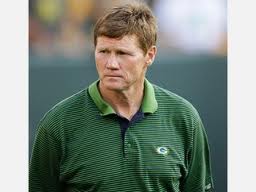The Green Bay Packers do not have an owner. They have a CEO, Mark Murphy, who reports to a board of directors. A “public” company with 350,000-plus fan-shareholders who own four million shares of stock worth less than the paper they’re printed on. The NFL is a business (as they say) and the Packers are run like a Fortune 500 company. When Mark Murphy retires, will his legacy be known for the Packers on-field product or their well stocked savings account?

The Business Of The NFL
Green Bay as a professional sports market has many unique challenges. It’s a relatively remote place with a harsh climate and certainly not seen as a “vacation destination” as Aaron Rodgers recently stated. Add it all up and you’d think the Packers were playing on the moon.
Residing in a comically small market in comparison to other NFL cities, the Packers executive leadership must put forth extra thought and effort to ensure the fiscal well being of the franchise. NFL profit sharing creates a strong base of income for all 32 franchises, but crucial operating income from local partnerships, real estate development and ticket/concession sales lie squarely on the teams business leadership.
In 2017, Mark Murphy’s vision of an all-encompassing fan district came to fruition with the Titletown District. Similar to other sports franchises, Murphy and the Packers executive leadership saw an opportunity to build a year-round destination for fans to eat, stay and play.
While the district is not entirely finished, the early reviews have been outstanding with many noteworthy attractions. Organizationally, the Titletown District creates another needed revenue stream for the franchise, especially during the leaner off-season months.
As a “public” company, the Packers annual report is available to anyone who is interested. You don’t have to be a CPA to see that there is plenty of “green” in the green and gold. In the 2021 fiscal year, a year in which most teams would be saddled with losses in the millions due to the COVID-19 pandemic, the Packers actually walked away with a net income of $60.7 million.
The organization’s operating expenses netted an expected loss of $38.8 million, but the Packers stock market investments skyrocketed to the tune of $120 million in unrealized gains. If the Packers financial advisor has any client openings, I’m sure they would have no shortage of suitors!
The financial side of running an organization often gets lost in the shuffle, and usually doesn’t make headlines. As Packers fans, we should be grateful that there isn’t a worry that if a new stadium isn’t built the team may flee for a more hospitable location or that the local TV deals aren’t profitable enough.
Mark Murphy and the whole of the Packers board of directors have done an excellent job ensuring the solvency of the current organization and laying the groundwork for a prosperous future.

On The Field
Mark Murphy officially took the reins as Packers CEO in 2008, and the Packers have had nearly unchecked success ever since. 10 winning seasons in 13 years, 7 division titles, 10 playoff wins and 1 Superbowl victory.
But how much of that praise can be heaped on Murphy? Some, to be sure, but the success in the early part of his tenure was largely set in motion by former Packers chairman Bob Harlan.
Harlan was responsible for the hire of Ted Thompson who then drafted Aaron Rodgers, signed Charles Woodson and put many, many other notable personnel in place en route to the Superbowl.
The Packers are squarely in the second half of Mark Murphy’s tenure as chief executive. Murphy’s stamp on the organization personnel-wise came in January of 2018 when polarizing general manager Ted Thompson stepped down and director of player personnel Brian Gutekunst was promoted to the top post.
In addition to promoting Gutekunst, Murphy took the opportunity to blow up the front office dynamic entirely. Russ Ball who entered the Packers organization in 2008 as vice president of player finance was also promoted to director of player personnel in 2018.
Murphy created a triumvirate of direct reports in (then) head coach Mike McCarthy, Brian Gutekunst and Ball. At the time a seemingly precarious structuring leaving Murphy with the final say for on-field football operations.
Since the 2018 season the Packers have parted ways with longtime head coach Mike McCarthy and hired young offensive mind Matt LaFleur. LaFleur has certainly exceeded expectations winning 13 games in each of his first two seasons respectively, to go along with two playoff victories.
It’s not known if the 2018 power structure remains intact due to the notoriously tightlipped nature of the Packers organization, but if Murphy’s first (and last) head coaching hire was Matt LaFleur, the odds are favorable that he’s found a great one.
Go Out On Top?
The 2021 season is shaping up to be a memorable one for many reasons, mostly because it’s likely Aaron Rodgers last ride. But at age 66, Mark Murphy could be riding off into the sunset shortly as well. Murphy has a Superbowl ring, but you have to wonder if he felt it was “his” team at that time?
The Packers are primed for another long playoff run this season, and winning another Superbowl would cement Mark Murphy’s legacy in Packers lore as both an astute businessman and virtuoso team manager.
You can follow Adam on twitter at @adamjcarlson28.
——————


1 response to “What’s Mark Murphy’s Green Bay Packers Legacy?”